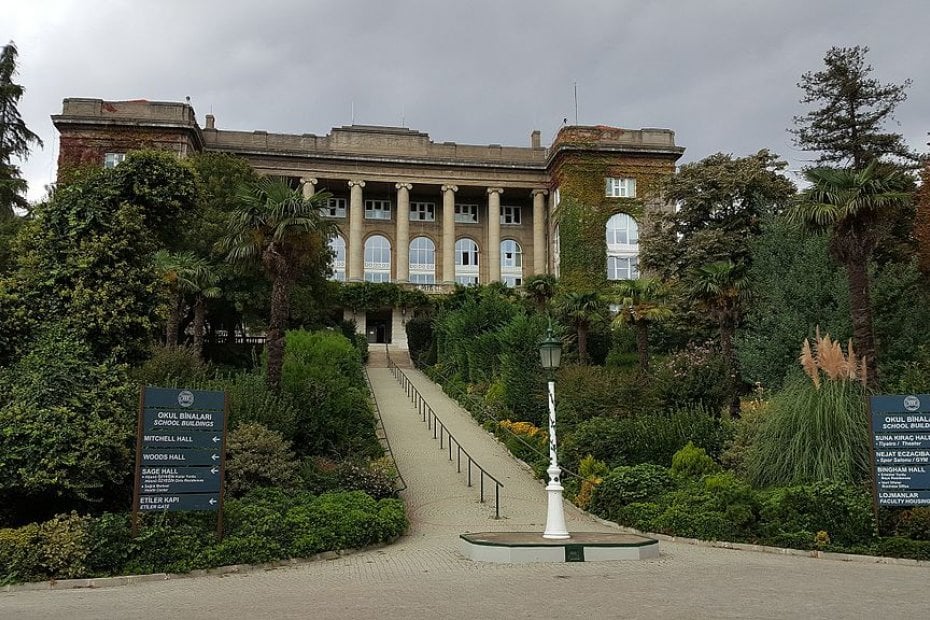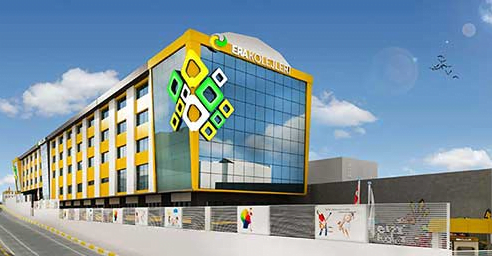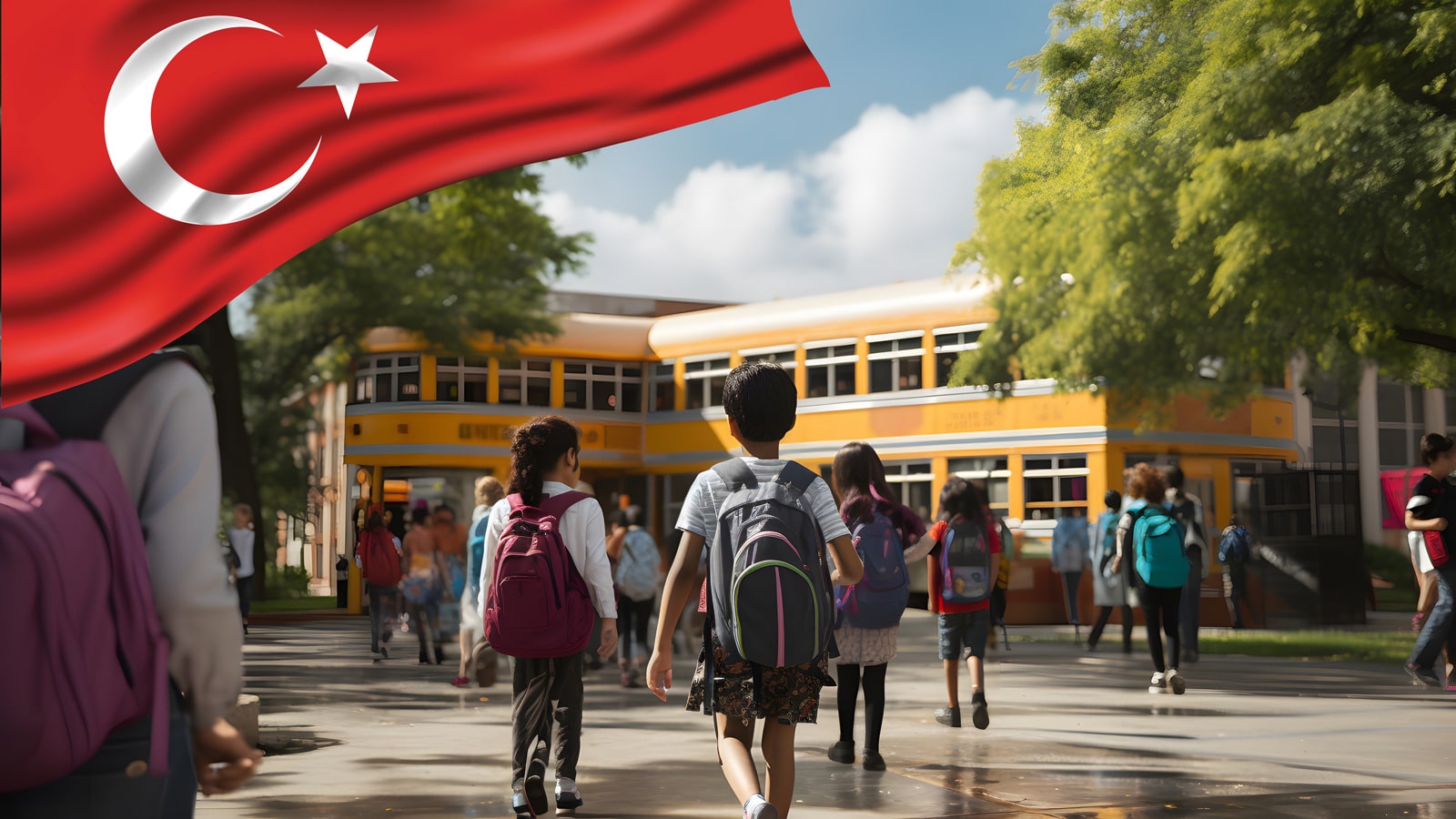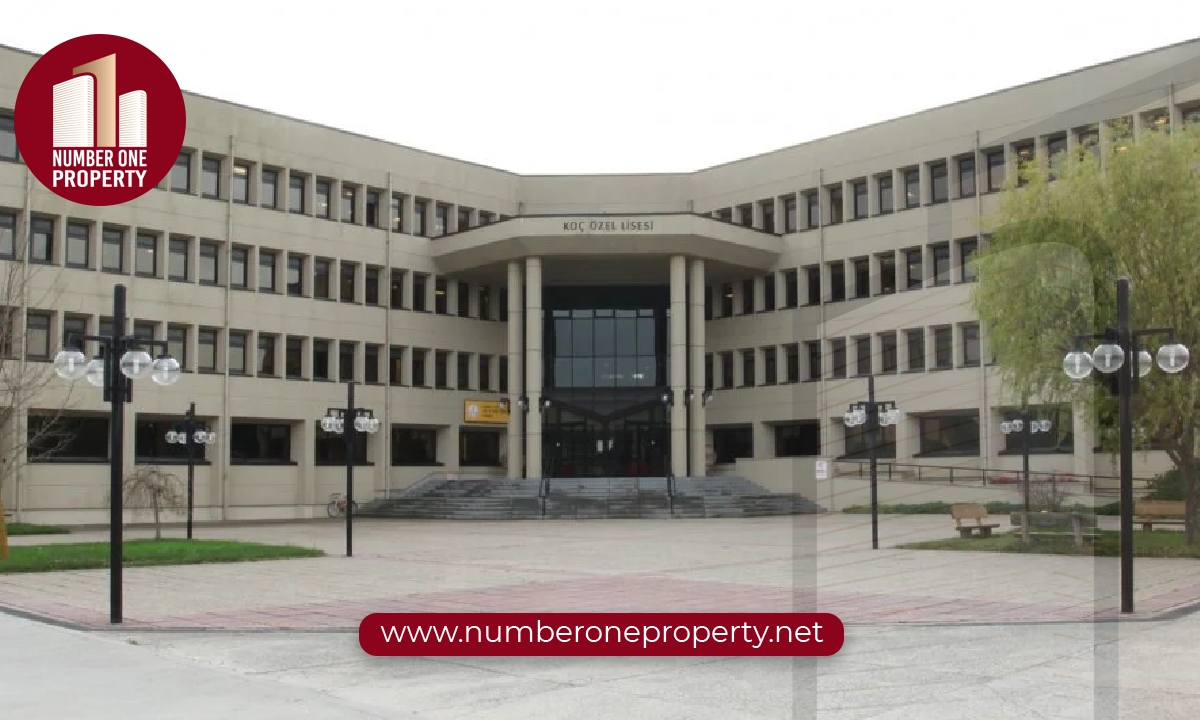Are you planning to move to Turkey or enroll your child in a Turkish school? This guide explores the Turkish education system in detail, covering public, private, and international schools, including Turkish schools, and outlines the curriculum and academic stages to help you make an informed decision.
Key Takeaways
- The Turkish education system follows a 4+4+4 model, providing 12 years of compulsory education divided into primary, secondary, and higher education stages.
- Public schools offer free education with a standardized curriculum, while private schools provide specialized programs at varying tuition costs, catering to different educational needs.
- Turkey has a growing landscape of higher education, with over 200 universities attracting international students due to affordable tuition and supportive academic infrastructure.
Overview of the Turkish Education System

The Turkish education system follows the 4+4+4 model, dividing education into three stages of four years each, balancing academic and practical skills. Compulsory education in Turkey spans 12 years, starting at age six and continuing until 18, providing a solid foundation for every child.
Turkey’s educational institutions are diverse, including public and private schools catering to various needs and preferences. Public schools are government-funded, reflecting significant investment to provide accessible, quality education. Conversely, private schools offer specialized programs and facilities for specific educational goals.
The Turkish government’s significant investment in public schools equips them with various resources, highlighting the importance of cultivating a well-educated populace.
Primary Education
Primary education in Turkey is compulsory and free, lasting eight years, starting at age six, to provide a solid educational foundation for all children. The standardized curriculum across all primary schools ensures consistent and thorough education in core subjects like mathematics, science, and the Turkish language. Additionally, the primary school experience is designed to foster a love of learning.
The school year in Turkey starts on September 10th and splits into two semesters of four months each. Primary schools are well-attended with a 97% enrollment rate as of 2019, underscoring the importance of early education. These years are crucial for developing fundamental skills and starting their educational journey on the right foot.
Secondary Education
Secondary education in Turkey offers various options to suit different interests and career paths, including general, vocational, and technical schools with specialized curricula. For instance, Imam Hatip secondary schools focus on religious education, while Science High Schools (Fen Lisesi) emphasize advanced scientific studies. Anadolu Lyceums provide enriched education with a strong focus on foreign languages, preparing students for global opportunities.
Typically lasting four years, secondary education in Turkey prepares students for further education or immediate entry into the workforce. Public and vocational high schools operate with a daily structure of six periods, each approximately 40 minutes long. Students aged 15 to 17 are the primary attendees of secondary schools, engaging in a curriculum that balances academic and practical learning.
General upper secondary schools rigorously prepare students for university, requiring them to pass the YGS and LYS exams for admissions. These schools focus on delivering a comprehensive education that equips students with the necessary knowledge and skills to succeed in higher education.
Higher Education
Turkey’s higher education institutions landscape has grown significantly to over 200 universities as of 2022, up from 76 in 2001-2002, reflecting a commitment to expanding educational opportunities and accessibility. Turkish universities are popular among international students, thanks to their affordable tuition fees and the relative ease of admission.
International students can gain admission to Turkish universities through exams like the YS or international tests such as the SAT. The academic infrastructure is supported by a substantial number of personnel, contributing to a robust educational environment. This growth and support make Turkey an attractive destination for higher education.
Public vs. Private Schools in Turkey
Understanding the differences between public and private schools in Turkey is crucial for informed educational choices. The Ministry of National Education oversees both sectors, ensuring educational standards are met, though experiences can differ significantly.
Tuition fees for private schools vary widely depending on location, facilities, and education level. While both public and private schools treat children warmly, the resources and opportunities can differ.
This section will delve into the specifics of what each type of school offers, helping you decide which might be the best fit for your child.
Public Schools
Public schools in Turkey offer free education to all students, funded and overseen by the Ministry of National Education, ensuring access to quality education for every child regardless of background. Public schools are widely available and provide a standardized curriculum aimed at fostering a well-rounded education.
Foreign students can also enroll in public schools, provided they have the necessary documentation. This inclusivity is a significant advantage for expatriate families.
Moreover, foreign children with a residence permit do not have to pay tuition fees, making public schools an attractive option for many international families.
Private Schools

Private schools in Turkey, categorized into four groups, typically offer longer class durations compared to public schools. They often provide additional support for foreign children, including mentors to help them learn Turkish and integrate smoothly. This personalized attention can be particularly beneficial for students adjusting to a new country and language.
Enrolling a child in a private secondary school can be costly and comes with stricter academic demands. Tuition fees for private colleges start at around EUR 4,000 per year, representing a significant investment for families. Despite the costs, many parents find the enhanced educational opportunities and specialized programs offered by private schools worth the expense.
Special Education in Turkey
Turkey has made significant strides in special education, ensuring that children with disabilities have their educational rights and needs met through specialized vocational schools and tailored institutions. Primarily located in big cities, these schools cater to various disabilities, including hearing, vision, and mental disabilities.
Individualized Educational Programs (IEPs) address the unique needs of each student, enhancing their learning experiences based on their capabilities. These programs often include vocational training opportunities, equipping students with practical skills for future employment. This approach prepares students for life beyond school.
Special schools in Turkey offer residential options, providing a supportive on-campus environment. The education curricula in these schools are adapted to each child’s abilities and talents, creating a tailored educational environment that enables students to learn alongside their peers whenever possible.
International Schools in Turkey
For expatriate families, international schools in Turkey offer a familiar educational framework. Istanbul alone hosts 36 international schools, making it a global education hub. These schools often offer International Baccalaureate programs and other international curricula like the Canadian system, ensuring a high standard of education.
Instruction languages at these schools include English, French, and German, catering to a diverse student body. However, the tuition fees for private international schools can range significantly, with some schools charging up to 726,900 TL. Despite the high costs, many families find the quality of education and the international community invaluable.
Non-Formal Education Institutions
The Turkish education framework includes both formal and non-formal options. Non-formal institutions, such as language schools, cater to expatriates and others looking to learn Turkish. These institutions offer intensive Turkish language courses designed for practical communication, starting from the very first lesson.
Royal Turkish School offers various course options, including standard, intensive, and private lessons tailored to different language levels at a Turkish language school. With class sizes limited to 5-8 students, these courses ensure personalized attention, making the learning experience more effective and engaging.
Choosing the Right School in Turkey
Choosing the right school for your child in Turkey involves considering several factors, including the school’s curriculum, which can vary significantly between public and private institutions. Understanding the curriculum ensures the school aligns with your child’s educational needs and future goals.
Class sizes and the availability of extracurricular activities are also important considerations. Private schools typically offer smaller class sizes, allowing for more personalized attention. Additionally, private schools often have more extensive extracurricular programs, offering opportunities for students to explore interests and develop new skills.
Learning Turkish: Language Schools and Courses
For expatriates and international students, learning Turkish is crucial for integrating into local culture and fully participating in everyday life. Turkish language centers in cities like Izmir and Istanbul offer a range of courses at various proficiency levels. These centers specifically cater to foreigners, providing a supportive environment for learning Turkish.
Courses are typically taught by native Turkish speakers with university degrees, ensuring high-quality instruction. Flexible learning options, such as one-on-one sessions and small group classes, enhance personalized attention and facilitate foreign language learning.
Upon completing a course, students receive a certificate from the language center, validating their skills and progress.
Royal Turkish School,The Istanbul
Royal Turkish School in Istanbul is renowned for its professional teachers and effective teaching methods. Many reviews highlight rapid language skill improvement among students, thanks to the school’s comprehensive approach to teaching. The school uses various teaching materials, ensuring students receive a well-rounded education in Turkish.
Courses offered in small groups allow for personalized attention and instruction. Students appreciate small class sizes, enabling more interaction with the teacher and better opportunities to practice speaking.
The friendly and supportive atmosphere, complete with tea and coffee breaks, makes learning enjoyable and effective.
Educational Activities and Extracurriculars

Turkish schools offer a wide range of extracurricular programs, allowing students to explore interests beyond academics. These activities include sports, music, drama, and art clubs, providing a well-rounded education that fosters creativity and personal growth. Public schools encourage participation in a diverse curriculum that includes arts and sports.
Engaging in extracurricular activities helps students develop important life skills like teamwork, leadership, and time management. Schools in Turkey often promote joining clubs and teams, facilitating social interaction and enhancing creative expression. These programs aim to build skills that benefit students in their personal and professional lives.
Summary
The Turkish education system offers a rich and diverse landscape, catering to a wide range of needs and preferences. From the structured 4+4+4 model to the various options in public and private schools, Turkey provides comprehensive educational opportunities for all students. Special education and international schools further enhance the inclusivity and global reach of the Turkish educational framework.
Choosing the right school in Turkey involves considering various factors such as curriculum, class size, and extracurricular activities. Whether you are an expatriate family or a resident, understanding these aspects will help you make informed decisions that align with your educational goals. The vibrant educational activities and the support for learning Turkish make Turkey an exciting place for educational growth.
Related Articles:
The most Famous Universities in Istanbul


